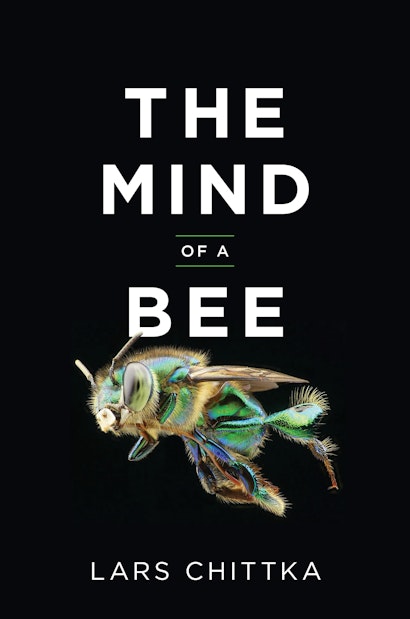Professor Lars Chittka draws from decades of research, including his own pioneering work, to argue that bees have remarkable cognitive abilities in this online lecture presented by BeeCraft, in association with Somerset Beekeepers’ Association.
Chittka writes: “Most of us are aware of the hive mind — the power of bees as an amazing collective. But do we know how uniquely intelligent bees are as individuals? In this lecture, I explore the bees’ remarkable cognitive abilities. You will learn that they are profoundly smart, have distinct “personalities”, can recognize flowers and human faces, exhibit basic emotions, count, use simple tools, solve problems, and learn by observing others. They may even possess consciousness. I will take you deep into the sensory world of bees, and illustrate how bee brains are unparalleled in the animal kingdom in terms of how much sophisticated material is packed into their tiny nervous systems. I will also examine the psychological differences between bees and the ethical dilemmas that arise in conservation and laboratory settings because bees might feel and think. Exploring an insect whose sensory experiences rival those of humans, I will explore the singular abilities of some of the world’s most incredible creatures.”
Professor Chittka studied Biology in Berlin and completed his PhD studies under the supervision of Randolf Menzel in 1993. An Adjunct Assistant Professor at Stony Brook University, USA until 1997, he then became an Assistant Professor at Würzburg University, Germany, where he completed his habilitation in 2000. He is now a full professor at Queen Mary, University of London, where he founded a new Research Centre for Psychology in 2008 and was its scientific director until 2012. He has carried out extensive work on the behaviour, cognition and ecology of bumble bees and honey bees, and their interactions with flowers. His discoveries have made a substantial impact on the understanding of animal intelligence and its neural-computational underpinnings. He has published over 250 peer-reviewed articles and has been an editor of biology’s foremost open access journal PLoS Biology since 2004. He is an elected Member of the German National Academy of Sciences (Leopoldina), a Fellow of the Linnean Society and Royal Entomological Society, as well as the Royal Society of Biology.
